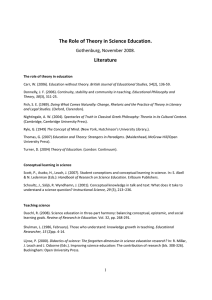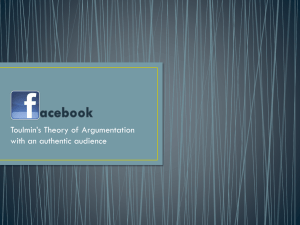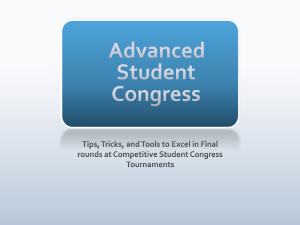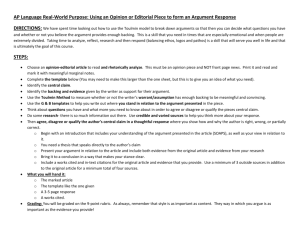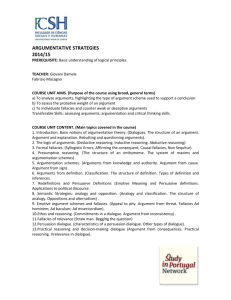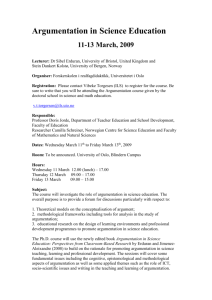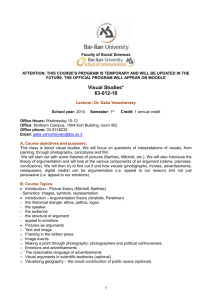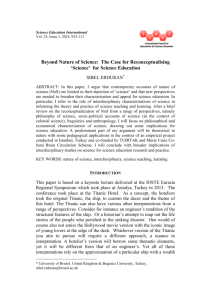References
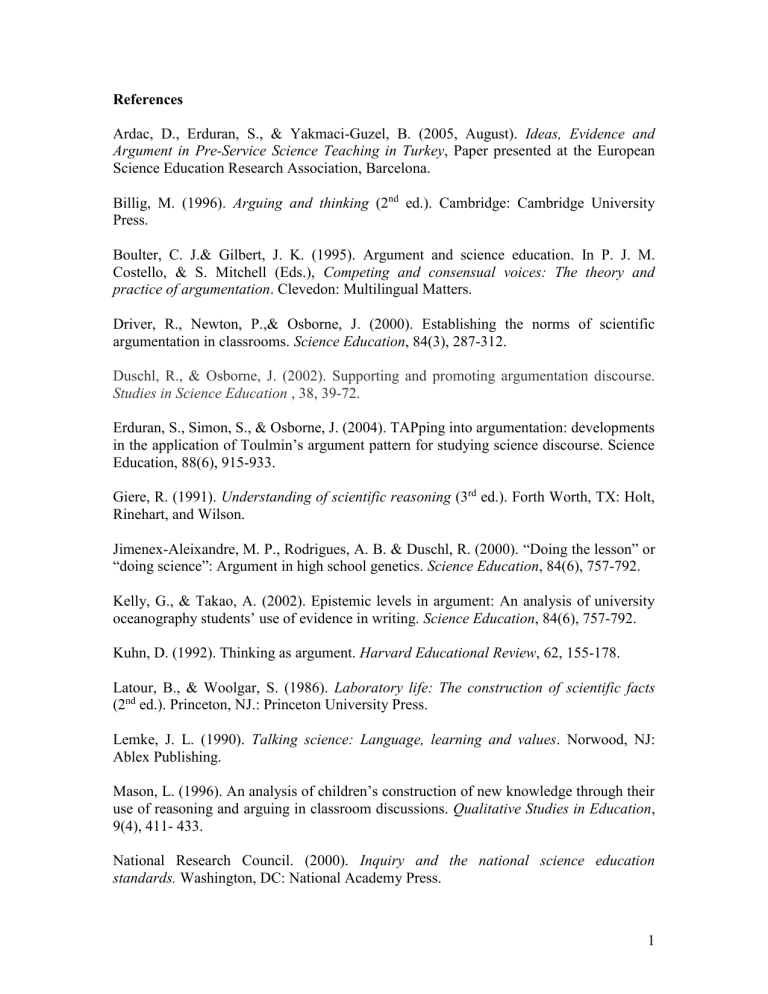
References
Ardac, D., Erduran, S., & Yakmaci-Guzel, B. (2005, August). Ideas, Evidence and
Argument in Pre-Service Science Teaching in Turkey , Paper presented at the European
Science Education Research Association, Barcelona.
Billig, M. (1996). Arguing and thinking (2 nd
ed.). Cambridge: Cambridge University
Press.
Boulter, C. J.& Gilbert, J. K. (1995). Argument and science education. In P. J. M.
Costello, & S. Mitchell (Eds.), Competing and consensual voices: The theory and practice of argumentation . Clevedon: Multilingual Matters.
Driver, R., Newton, P.,& Osborne, J. (2000). Establishing the norms of scientific argumentation in classrooms. Science Education , 84(3), 287-312.
Duschl, R., & Osborne, J. (2002). Supporting and promoting argumentation discourse.
Studies in Science Education , 38, 39-72.
Erduran, S., Simon, S., & Osborne, J. (2004). TAPping into argumentation: developments in the application of Toulmin’s argument pattern for studying science discourse. Science
Education, 88(6), 915-933.
Giere, R. (1991). Understanding of scientific reasoning (3 rd
ed.). Forth Worth, TX: Holt,
Rinehart, and Wilson.
Jimenex-Aleixandre, M. P., Rodrigues, A. B. & Duschl, R. (2000). “Doing the lesson” or
“doing science”: Argument in high school genetics.
Science Education , 84(6), 757-792.
Kelly, G., & Takao, A. (2002). Epistemic levels in argument: An analysis of university oceanography students’ use of evidence in writing.
Science Education , 84(6), 757-792.
Kuhn, D. (1992). Thinking as argument. Harvard Educational Review , 62, 155-178.
Latour, B., & Woolgar, S. (1986). Laboratory life: The construction of scientific facts
(2 nd
ed.). Princeton, NJ.: Princeton University Press.
Lemke, J. L. (1990). Talking science: Language, learning and values . Norwood, NJ:
Ablex Publishing.
Mason, L. (1996). An analysis of children’s construction of new knowledge through their use of reasoning and arguing in classroom discussions. Qualitative Studies in Education ,
9(4), 411- 433.
National Research Council. (2000). Inquiry and the national science education standards. Washington, DC: National Academy Press.
1
Osborne, J. F., Erduran, S. & Simon, S. (2004). Ideas, evidence and argument in science.
In-service Training Pack, Resource Pack and Video. London: Nuffield Foundation.
Osborne, J. F., Erduran, S., & Simon, S. (2004a). Enhancing the quality of argument in school science. Journal of Research in Science Teaching , 41(10), 994-1020.
Pontecorvo, C. (1987). Discussing and reasoning: The role of argument in knowledge construction. In E. De Corte, H. Lodewijks, R. Parmentier, P. Span (Eds.), Learning and
Instruction: European research in an international context , (239-250). Oxford:
Pergamon Press.
Siegel, H. ( 1989). The rationality of science, critical thinking and science education.
Synthese , 80( 1), 9-42
Simon, S., Erduran, S. & Osborne, J. (2006). Learning to teach argumentation: Research and development in the science classroom, International Journal of Science Education ,
28(2&3), pp. 235-260.
Toulmin, S. (1958). The uses of argument. Cambridge: Cambridge University Press.
Vygotsky, L. (1978). Mind in society. London: Harvard University Press.
2
